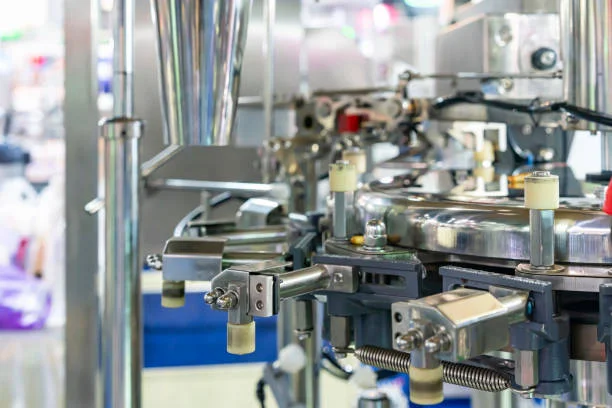How Much is Genotype Test in Nigeria in 2025

Genotype testing is more than just a medical check; it’s a necessity, especially in Nigeria, where sickle cell disease is prevalent. Understanding your genotype can prevent future health complications, guide marriage decisions, and help in planning for a healthy family. With increasing awareness, more people are asking: How much is genotype test in Nigeria? This article breaks down everything you need to know about genotype test costs in 2025.
- Dr Paul Enenche Songs MP3 – Download Latest Gospel Hits
- 10 Foods That Can Help Manage High Blood Pressure Naturally
What is a Genotype Test?
A genotype test analyzes a person’s DNA to determine their genetic makeup. In Nigeria, this test is primarily used to identify blood-related genetic traits, such as AS, AA, SS, and SC genotypes. Unlike a blood group test, which simply determines compatibility for transfusion, a genotype test is crucial in understanding hereditary risks.
Why is Genotype Testing Important?
Knowing your genotype is essential for preventing genetic blood disorders, particularly sickle cell anemia. Couples planning to marry are advised to take this test to ensure compatibility and prevent having children with sickle cell disease. Additionally, genotype knowledge helps in medical emergencies where blood compatibility is required.
How is a Genotype Test Conducted?
The process of conducting a genotype test typically follows these steps:
1. Blood Sample Collection:
The first step in a genotype test is the collection of a blood sample. This is usually done by a healthcare professional who will draw a small amount of blood, typically from a vein in the arm, using a syringe or needle. The procedure is minimally invasive and is done in a sterile environment to avoid contamination.
2. Laboratory Processing:
Once the blood sample is collected, it is sent to a laboratory for analysis. In the lab, the sample undergoes one of several testing methods, commonly including:
- Electrophoresis: A technique used to separate different types of hemoglobin (or other proteins) in the blood based on their size and charge. This is commonly used for identifying sickle cell disease and related conditions.
- Polymerase Chain Reaction (PCR): A molecular technique used to amplify specific segments of DNA. PCR can be used to detect genetic variations associated with blood groups and genetic disorders.
3. Result Processing and Interpretation:
After processing, the laboratory will analyze the test data, comparing it to known genetic markers. This step helps determine the individual’s genotype, such as whether they have normal hemoglobin (AA), sickle cell trait (AS), or sickle cell disease (SS). The results are typically compiled into a report that will then be reviewed by a medical professional for further interpretation.
4. Time Frame for Results:
In Nigeria, the time it takes to receive genotype test results can vary depending on the laboratory and the complexity of the analysis. Generally, results are available within 24 to 72 hours after the sample is processed. However, some advanced laboratories or private diagnostic centers may offer expedited services, providing results on the same day or within 24 hours for certain tests.
The speed of result delivery can be influenced by various factors such as:
- Location: More urbanized areas, such as Lagos or Abuja, often have more advanced testing facilities that can process results faster.
- Test Type: More basic tests, like blood typing, may take less time, while genetic analysis that involves more complex methods like PCR may require a longer processing time.
- Laboratory Workload: High demand or complex cases might lead to longer waiting times for results.
Where to Get a Genotype Test in Nigeria
Genotype tests are available in:
- Government hospitals – Affordable but often slow due to high patient volume.
- Private clinics and laboratories – Faster but typically more expensive.
- At-home test kits – Emerging as a convenient but less reliable option.
How to check genotype at home? Some test kits claim to provide results at home, but medical experts recommend lab verification for accuracy.
How Much is a Genotype Test in Nigeria?
The cost of a genotype test in Nigeria varies based on location, facility type, and additional services. In 2025, the price range is:
- Government hospitals: ₦2,000–₦5,000
- Private hospitals and laboratories: ₦5,000–₦15,000
- Home test kits: ₦10,000–₦20,000
How Much is a Blood Test in Nigeria?
Blood test costs in Nigeria depend on the type of test being conducted. A general blood test may range from ₦2,000 to ₦20,000, depending on the specific analysis required.
Genotype Test Price in Major Cities
- How much is genotype test in Lagos? – ₦5,000–₦15,000
- How much is genotype test in Ibadan? – ₦3,000–₦10,000
- Other states – Prices vary but generally follow the range of ₦2,000–₦12,000
How Much is Genotype and Blood Group Test in Nigeria?
A combined genotype and blood group test is slightly more expensive, ranging between ₦4,000 and ₦18,000, depending on the facility.
How Much is Genotype Test in Nigeria Nairaland?
Online forums like Nairaland provide insights from real users. Many report paying ₦3,000–₦10,000 for genotype tests in different states. How much is genotype test in Nigeria Nairaland for pregnancy? Prices are similar but may be higher at specialized maternity hospitals.
How Much is Genotype Test in a Nigerian Hospital?
Public hospitals typically charge between ₦2,000 and ₦5,000, while private hospitals may range from ₦7,000 to ₦15,000, depending on the service speed and facility reputation.
Price Trends and Future Cost Predictions
With inflation and advancements in medical technology, genotype test costs may fluctuate. By 2030, prices may either drop due to increased accessibility or rise due to economic factors.
When Can a Baby’s Genotype Be Determined?
A baby’s genotype can be determined shortly after birth through advanced genetic screening techniques. In fact, newborns can undergo testing immediately after birth, typically through a blood sample collected from the heel. This early testing is often used for basic screening purposes and can give preliminary results. However, the accuracy and precision of these results can sometimes be influenced by the baby’s age, the method of testing, and the laboratory conditions.
For absolute accuracy, healthcare professionals generally recommend waiting until the baby is at least six months old before conducting a genotype test. By this time, the baby’s genetic markers are more stable, and the sample is easier to analyze, yielding more reliable and precise results. This period allows for more accurate identification of hemoglobin variants (such as sickle cell traits) and other genetic factors that could influence the child’s health.
Are Home Genotype Test Kits Reliable?
At-home genotype test kits are gaining popularity, but their accuracy is often questioned. It is advisable to confirm results with a professional laboratory.
Conclusion
Genotype testing in Nigeria is essential for health planning and marital compatibility. While prices vary, the cost is relatively affordable compared to the long-term benefits of knowing one’s genetic status. Early testing is key to making informed decisions and ensuring a healthy future.
Article updated 3 months ago ago. Content is written and modified by multiple authors.









